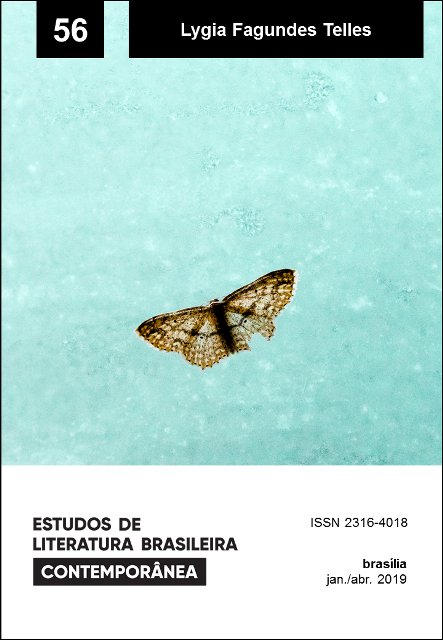The impossibility of death in literature: Lygia Fagundes Telles and Maurice Blanchot
DOI:
https://doi.org/10.1590/2316-40185613Keywords:
death, Lygia Fagundes Telles, Maurice BlanchotAbstract
Based on the short story “Natal na barca” by Lygia Fagundes Telles, this article analyzes the perspective of the impossibility of death in three short stories (“As formigas”, “Anão de jardim” and “Venha ver o pôr-do-sol”) as well as in two novels (Ciranda de Pedra and As meninas) by the same author. In dialogue with the texts of Lygia, the French author Maurice Blanchot offers us a theoretical basis for this article, since his ideas of the impossibility of death in literature are prolific throughout his essays, such as, O espaço literário and A parte do fogo.
References
BLANCHOT, Maurice (1987). O espaço literário. Tradução de Álvaro Cabral. Rio de Janeiro: Rocco.
BLANCHOT, Maurice (1997). A parte do fogo. Tradução de Ana Maria Scherer. Rio de Janeiro: Rocco.
BLANCHOT, Maurice (2005). O livro por vir. Tradução de Leyla Perrone-Moisés. São Paulo: Martins Fontes.
DERRIDA, Jacques (1998). Demeure: Maurice Blanchot. Paris: Galilée.
HILST, Hilda (2003). Da morte: odes mínimas. In: HILST, Hilda. Da morte: odes mínimas. São Paulo: Globo.
TELLES, Lygia Fagundes (1998). As formigas. In: TELLES, Lygia Fagundes. Mistérios. Rio de Janeiro: Rocco.
TELLES, Lygia Fagundes (1998). Natal na barca. In: TELLES, Lygia Fagundes. Mistérios. Rio de Janeiro: Rocco.
TELLES, Lygia Fagundes (1998). Venha ver o pôr-do-sol. In: TELLES, Lygia Fagundes. Mistérios. Rio de Janeiro: Rocco.
TELLES, Lygia Fagundes (2004). Anão de jardim. In: TELLES, Lygia Fagundes. Meus contos preferidos. Rio de Janeiro: Rocco.
TELLES, Lygia Fagundes (2009). Ciranda de pedra. São Paulo: Companhia das Letras.
TELLES, Lygia Fagundes (2009a). As meninas. São Paulo: Companhia das Letras.
Downloads
Published
Issue
Section
License
Authors who publish in this journal agree to the following terms:
a) The authors maintain the copyright and grant the journal the right of first publication, the work being simultaneously licensed under the Creative Commons Attribution License-Non Commercial 4.0 which allows the sharing of the work with acknowledgment of the authorship of the work and publication this journal.
b) Authors are authorized to enter into additional contracts separately, for non-exclusive distribution of the version of the work published in this journal (eg publish in institutional repository or as a book chapter), with authorship recognition and publication in this journal.
c) Authors are allowed and encouraged to publish and distribute their work online (eg in institutional repositories or on their personal page) after the editorial process, as this can generate productive changes, as well as increase the impact and citation of published work (See The Effect of Free Access).
d) The authors of the approved works authorize the magazine to, after publication, transfer its content for reproduction in content crawlers, virtual libraries and the like.
e) The authors assume that the texts submitted to the publication are of their original creation, being fully responsible for their content in the event of possible opposition by third parties.


